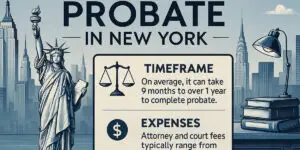Digital assets such as Bitcoin and crypto currency often falls to out of to do plans. Most people haven’t even given a thought to what could happen to their digital asset if they die or something unplanned happens. Just like physical assets, your crypto assets should be protected and also ready to be passed to desired beneficiary when the time comes.
Although is seem like one of those daunting task for people who don’t know how to go about creating a plan for such volatile and digital asset. And with trust been a major issue when it comes to digital assets, most individual are scared of disclosing their crypto accounts as it risk being wipe out. This should not be. And that’s why We are here to help you.
Here are steps to creating a crypto estate plan
Inventory all your digital assets
You have to start by determining what digital assets you own, how you own them and where they are held. The truth is you may not even be aware of all your digital assets. You may have forgotten all about that crypto currency wallet where you bought a few coins. They may turn out to become quite a fortune in a few years. To be safe, you would need to keep track of your login details to all your digital accounts including email and other social media accounts you use for business.
You may think you own an asset but what you really own is a non-transferable right to use the asset. So you can’t transfer such an asset to a loved one via your estate plan. It’s essential you check the Terms of Use for each asset you are inventorying.
Store all your assets and their logins in a secure place
Now, you need to store your data properly to enable your family or fiduciary gain access to them when the need arises.
Add more security by backing up your data on a physical storage device
Storing your data in the cloud is not always enough. Cloud providers can make data access more complicated for your family. To make things easier for them, back up all your online data to your computer or storage. One good storage option is FidSafe®. This also gives you another layer of protection.
Strategize on how you want your crypto assets managed
You would be leaving your login details to someone when you pass away. Now you want to be sure that person is someone you can trust. However, you can always specify how you want the digital assets managed by your executor before passing down to the beneficiary. But most importantly, you have to be sure no one else has access to your login details. If there is, then fraud and theft wouldn’t be too far away.
It is also advisable to have a separate digital executor, one who handles only your digital assets.
Address all of that in your will or trust
Just as you address your tangible assets in your will, do the same for the digital ones. Specify whom you want each account to go to. When you pass away, the executor will grant access to the beneficiary, and they can continue using the asset to make wealth. Both tangible and digital assets should be addressed in the same will as you are only allowed to have one will.
Why you need estate planning for your digital assets
There are criminal and data privacy laws that prevent anyone from accessing an account unauthorized. As such, no matter how much good faith your spouse or child has, they cannot access your digital assets except you give them the allowance via your estate plan.
Bottom line
Most people don’t consider it a necessity or probably ignorance on how to estate plans concerning their crypto assets. They end up dying without their family even knowing anything about their assets. As you make plans for your physical assets, do likewise for your crypto and digital assets.
Talk to an estate planning attorney today
Planning for your digital assets doesn’t have to be difficult. To ensure you get everything right without costly errors, talk to an attorney near you.








